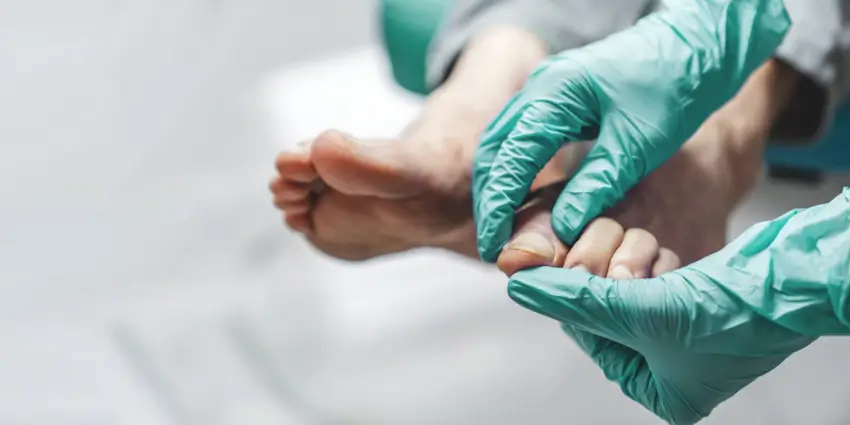Dental and Podiatry
Malpractice of New York (only)
Handling only New York State cases, Dental and Podiatry Malpractice of New York is dedicated to aggressively protecting the rights of victims of medical malpractice. Lance Ehrenberg, Esq., and Lawrence M. Karam, P.C. skillfully handle cases involving all types of medical negligence, and each attorney has a specific focus. Lance Ehrenberg handles New York only dental malpractice cases and Larry Karam concentrates on New York only podiatry malpractice. Each lawyer is well-respected with decades of experience and an impressive record of successful outcomes

Contact Our Experienced New York Medical Malpractice Attorneys Today
 Handling only New York State cases, Dental & Podiatry Malpractice Lawyers of New York encompasses two extraordinary law firms: Lance Ehrenberg, Esq. and Lawrence M. Karam, P.C. These practices complement one another and serve their clients well.
Handling only New York State cases, Dental & Podiatry Malpractice Lawyers of New York encompasses two extraordinary law firms: Lance Ehrenberg, Esq. and Lawrence M. Karam, P.C. These practices complement one another and serve their clients well.
Both attorneys have extensive experience and track records of successful settlements only in New York State. Both draw clients who have been victimized by various types of medical negligence, not only dental or podiatry malpractice. As you seek justice and maximum compensation for all you have suffered, contacting either responsive professional will put you closer to your goal. Contact their offices today for a free consultation for a New York based case.

NYC Dental Malpractice Attorney
Contact Lance Ehrenberg if you have New York based case. He has the outstanding credentials and well-developed litigation skills to recover the damages you need and deserve for all you have endured. Legally, as a victim of dental malpractice in New York, you are entitled to compensation for any of the following that apply in your case: medical costs, loss of income, pain and suffering, facial paralysis or disfigurement, jaw dysfunction, tooth loss, and loss of enjoyment of life.
Medical Malpractice Lawyers
If you or a loved one has been injured due to medical malpractice in New York (only), the law firms of Lawrence M. Karam, PC and Lance Ehrenberg, Esq. are equally well-prepared to fight for your right to compensation. Never forget that medical malpractice cases are among those most difficult to win. You need a lawyer who keeps current with every change in the law and has superb litigation skills to bring you the results that will reimburse you for losses that have already occurred and keep you secure going forward.
New York Podiatry Malpractice Attorney
If you or a loved one has suffered harm due to podiatric negligence in New York State, Larry Karam is uniquely qualified to handle your case. Beyond his in-depth knowledge of podiatry surgeries, he has deep compassion for the clients who come to him with ongoing pain, mobility issues, or who are permanently disabled as a result of podiatric malpractice. He is a strong courtroom strategist, well-prepared to fight to win you money damages for medical costs, loss of income, pain and suffering, foot or toe deformity, impaired mobility, and loss of enjoyment of life.
New York City Dental Malpractice:
Lawyer Lance Ehrenberg Esq.
After four decades in practice, Lance Ehrenberg is all too familiar with the harm that can result from dental negligence in and around New York City, ranging from loss of teeth to nerve damage to failure to diagnose cancer. Some dental negligence is due to lack of experience or ineptitude; some negligence is simply the result of rushing or lack of concern.
Contact Lance Ehrenberg, Esq. now for a free consultation for a New York based case to find out if you have a viable malpractice claim and what it may be worth. Once you become his client, Lance will charge you no attorneys’ fees until he wins you just compensation. Moreover, he will always treat you with respect and compassion.
No matter what the reason, there is no excuse for dental malpractice. If your New York dentist’s misconduct has upended your life, the law entitles you to compensation. Lance Ehrenberg will work tirelessly to see that you receive the substantial damages you deserve for:
- Loss of teeth
- Faulty crowns and bridges
- Nerve damage
- Bone loss
- Oral surgery errors
- Sinus perforation
- Defective root canals
- Gum disease
- Infection caused by improper sterilization
- Improper implant procedures
- Failure to diagnose or treat oral cancer
- Anesthesia/medication errors

New York Podiatry Malpractice Attorney:
Lawrence M. Karam, P.C.
Larry Karam has always had a special interest in podiatry malpractice cases and has immersed himself in the field, taking a great many courses podiatrists themselves take to maintain their licenses, and observing a great many intricate foot surgeries. These experiences have given him an understanding of the do’s and don’t’s of podiatric surgery that most lawyers lack.
If your treatment occurred in New York, getting in touch with Larry Karam for a free initial consultation can make a major difference in the outcome of your podiatry malpractice case. He is both an astute attorney and a compassionate person. Contact him today and remember — he won’t charge you any attorneys’ fees until he wins your case.

Beyond his extraordinary knowledge of podiatry, Larry Karam is a highly skilled litigator, giving the patients who come to him a significant advantage in the courtroom. Therefore, he has fresh insight into what constitutes podiatry malpractice. Podiatric malpractice lawsuits commonly involve:
- Failed bunion surgery
- Failed heel spur surgery
- Failed hammertoe surgery
- Mishandled diabetic ulcers
- Unnecessary or multiple surgeries
- Undiagnosed or misdiagnosed foot cancer
- Surgical errors
- Lack of informed consent
- Medication errors (prescription or dosage)
- Anesthesia misadministration



